Wandering around the many stalls and other attractions at Turriff Show this summer, I was impressed by the number of young people about.
Yes, it was a sunny day and a fabulous day out for families from far and wide.
But there was a palpable enthusiasm for farming.
Whether it was the shiny new tractors and ploughs, or the vintage steam engines and huge array of livestock and other animals, children of all ages – and adults too, of course – were captivated.
This got me thinking about the future of farming and the generations to come who will rise to the challenge of keeping us all fed.
Are there enough school-leavers and college or university graduates choosing careers in agriculture.
Is it an attractive industry for young people growing up today?
Are they prepared to get muddy and ignore the lure of our towns and cities?
Signs look good for a bright future for Scottish farming sector
Well. I’m happy to say there is plenty of evidence to suggest they are.
One of them, Nicola Wordie, who works on her family’s farm at Cairnborrow, near Huntly, was at Turriff Show to help promote careers in agriculture and also St Margaret’s School for Girls, in Aberdeen, where she spent her formative years.
Farming traditions alive and well
St Margaret’s has a long history of teaching girls from north-east farming communities.
Its pupils study a cross-curricular farming topic and learn about the importance of agriculture from a young age.
Nicola went on to study for an HND in agriculture and is now enjoying an “amazing” career”.
Pupils from Monquhitter Primary School in Cuminestown, Aberdeenshire, were eager to try their own hand at farming by growing tatties for chef Catriona Frankitti to use in her cooking demonstrations at Turriff Show.
Former Turriff Show president Graeme Mackie, of Little Hilton Farm, visited the school early in the project.
Mr Mackie said: “Rolling up their sleeves to plant, care for and watch their food grow gives the children a sense of pride in their work and an enhanced appreciation for the food on their plates.”
So, what about those young people who have already chosen the farming life? Is it what they expected?
Agricultural co-operative Ringlink Scotland, based in Laurencekirk, went back to some of those who were on its land-based pre-apprenticeship scheme to find out where they are now.
They were asked about there careers to date, and how and why they got into farming.
Maddie Cairnie – “an RAF kid growing up” – came through the pre-apprenticeship programme, working at Angus Soft Fruits, in 2020.
Where is Maddie now?
She went on to do a Modern Apprenticeship and is now employed at Lunan Bay Farm, in Angus, as a stocksperson looking after all the goats. She also has her own flock of Shetland sheep.
“The most enjoyable parts of the job I have now is being able to raise them from newborns to fully grown cashmere goats,” Maddie said, adding: “They’re very loving creatures.
“They do know what’s going on and they pick up on when I’m stressed or sad.”
Maddie said her pre-apprenticeship helped her get her foot in the door.
She added: “I have achieved a lot, especially with starting my own flock.
“I want to encourage locals to source sustainable fibre and meat from a local source, and help prove to farmers there is a place for these natives and rare breeds on their farm, whether it’s grazing rough ground or adding hardier genetics to their already existing flock.”
Brianna Watson is a 2019 pre-apprentice, with Byres Farm in Fochabers.
Banchory-based Brianna now has thousands of followers on TikTok
She stayed on for four years before moving down to the Cotswolds to do a harvest season on an 8,000-acre farm.
Now living in Banchory, Aberdeenshire, she is a successful farming influencer on TikTok.
She has ambassadorship deals with rural fashion brands Fairfax & Favor and Rydale, and more than 43,000 TikTok followers.
Brianna said: “The pre-apprenticeship… is a great step for people like me who are not in farming to get into it.
“It’s hard to get work experience if you’ve never driven a tractor.
“My mentors were the three brothers at JW Smith and they taught me a lot. They got me to where I am today.
Blood sweat and tears
“I didn’t realise the amount of blood, sweat and tears that goes into farming.”
Brianna’s TikTok success started with a video of a day in her life on the farm.
Meanwhile, Logan Smith – a 2019 pre-apprentice and then a farm worker at WJ Ralston, near Methven, Perthshire – went on to do an MA in agriculture.
He later moved to Borders and also spent two years in harvest work in Australia.
Logan had only worked on arable crops until recently, when he started working at T Clark & Sons, near Crieff, Perthshire, to get experience of livestock.
He said: “It’s not just driving a tractor or working with livestock, there’s so many more aspects to it, and there’s a job for everyone.
“The pre apprenticeship really just helped my career kick off in agriculture.
“First day on the farm on the placement was quite an experience – just hopping into a huge tractor and away I went with the baler.
“That was the first day of work for me and I was absolutely loving it. But at the same time it was it was quite daunting.
My future goal is to, ultimately, get my own tractor and do a bit of contracting.” Logan Smith
“The mentor and other farms that I’ve worked for have all been super supportive in taking their time with me. They’ve been very good at pushing me to do as many different things on the farm as possible and get experience on everything.
“My future goal is to, ultimately, get my own tractor and do a bit of contracting… or be able to actually manage a farm, or start a business myself.”
Glen Tanar kick-started Ruari’s career in the farming sector
Ruari Wild-Wood is a 2017 pre-apprentice, with Glen Tanar Estate in Aberdeenshire.
He stayed there for four years and did a Modern Apprenticeship through the Scottish School of Forestry in Inverness.
He now lives with his partner on Glen Tanar Farm – an upland farm, with 600 head of sheep and 50 cattle.
Ruari said: “I came up from Cambridge at the age of 18 to an estate in Scotland.
“My grandmother was in Stonehaven at the time, but that was about an hour’s drive away so I was really quite isolated. You’ve got to push yourself out your comfort zone a wee bit.
What I most got out of the pre-apprenticeship programme with Ringlink was a good understanding and introduction into the land-based sector, because I was not originally from a forestry or farming background.
“Obviously it is skilled work. If you get good at it, there’s a career.”
SRUC at the heart of getting new recruits into the farming industry
Of course, Scotland’s Rural College (SRUC) is all about getting new people into the industry,
SRUC marketing and student recruitment manager Hannah D’Mellow said: “Our courses consider the innovative science that supports land-based and rural industries, the way they interact with and support the environment around them, as well as the businesses that rely on them.
Growing interest in SRUC’s courses
“We are still receiving applications for our agriculture courses at HNC, HND and degree level for the 2024-25 academic year.
“However, we have seen increases every year since 2021, with numbers up to 334 in 2023-24. Other agriculture-related courses, such as rural animal health, are also proving very popular with young people who are keen to work in the rural sector.”
Farming minister Mairi Gougeon meets some of sector’s new recruits
Rural affairs secretary Mairi Gougeon visited Ringlink Scotland earlier this summer to find out all about its innovative, land-based pre-apprenticeship scheme.
And she met some of the young people who have first-hand experience of it.
Accredited by Scotland’s Rural College, the initiative is currently funded by Scottish Government and administered by Skills Development Scotland on an extended pilot basis.
Ringlink provides the day-to-day management of the programme, recruits and supports candidates and mentor businesses, and provides certified training for the trainees.
There are so many exciting opportunities available right across the agricultural sector.” Mairi Gougeon, Scotland’s minister for rural affairs
Ms Gougeon chatted to current pre-apprentice Danielle Wrigley, as well as graduates Logan Smith and Maddie Cairnie from the 2019 and 2020 programmes respectively.
Each of them shared their experience of coming from a non-agricultural background and how the pre-apprenticeship gave them that important first step into the industry.
The minister said: “Supporting new entrants, particularly young people, into agriculture is absolutely vital to protect the future of the sector.
“It was great to meet the pre-apprentices and hear how the programme has helped build their confidence and develop their skills.
Supporting new entrants, particularly young people, into agriculture is absolutely vital to protect the future of the sector.”
“There are so many exciting opportunities available right across the agricultural sector.
“That was really emphasised by the young people I spoke to who had been through the scheme.”
Danielle told Ms Gougeon, the SNP MSP for Angus North and Mearns, she had left a job in social care after hearing about the pre-apprenticeship from schoolfriends who’d already been through it.
And she said she was now thoroughly enjoying it.
Ringlink seeking more funding to keep pre-apprenticeships going
Ringlink managing director Graham Bruce said: “We’ve proved there is sufficient demand for this pathway into the rural sector.
“We’ve applied to the Scottish Government to continue the funding for this vital initiative that really does make a difference.
“Working together across Scotland, the machinery rings hope to have 85 young people complete the pre-apprenticeship this year, with 45 through Ringlink alone.
“Continued funding would let us prepare more young people for the world of work in the land-based sector, as well as go into schools and promote the industry and the amazing opportunities it offers.”
The pre-apprenticeship placements – now in their 12th year – provide practical experience, training and knowledge.
Nearly 30 young trainees, including Danielle, joined the scheme earlier this summer.
Applications for the winter intake, starting in January, open tomorrow (September 1).
And applications for summer 2025 open on November 1.
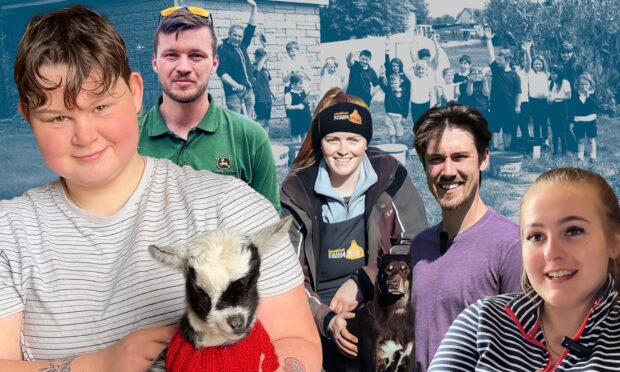
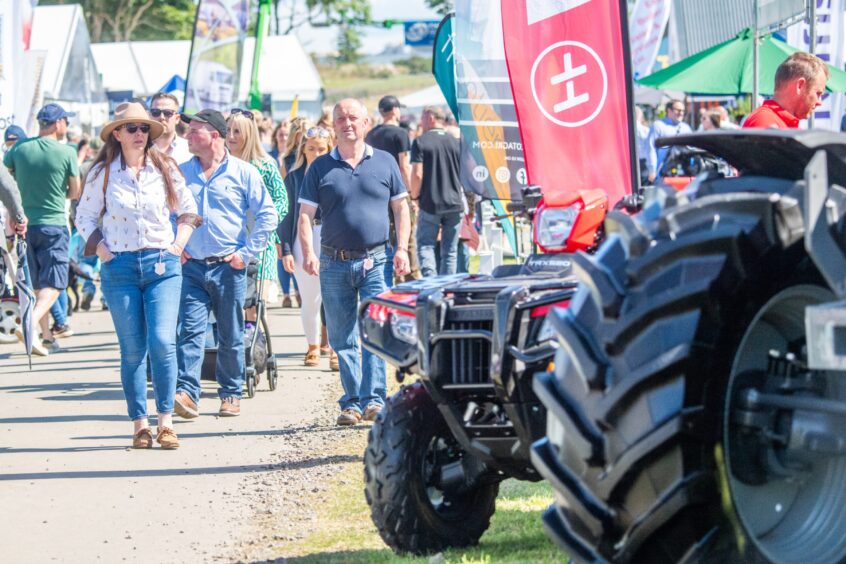
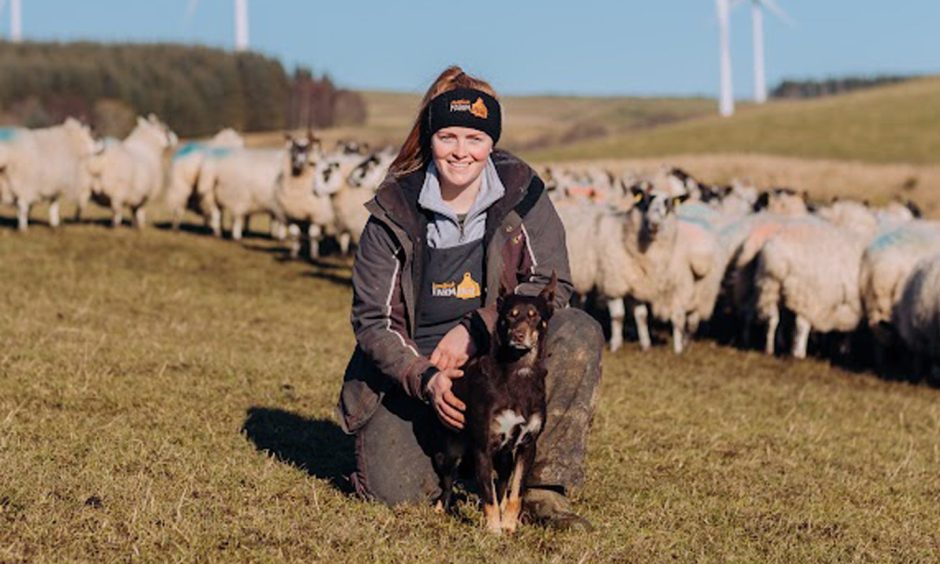
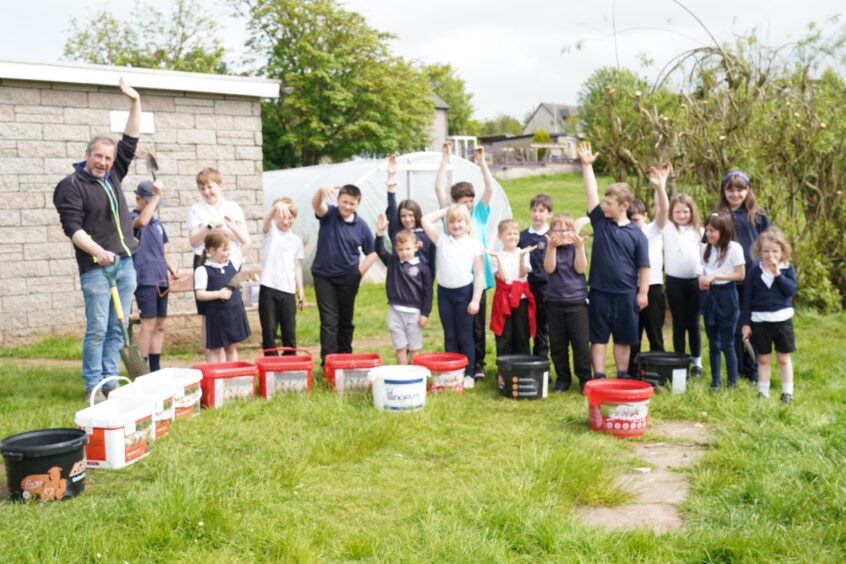
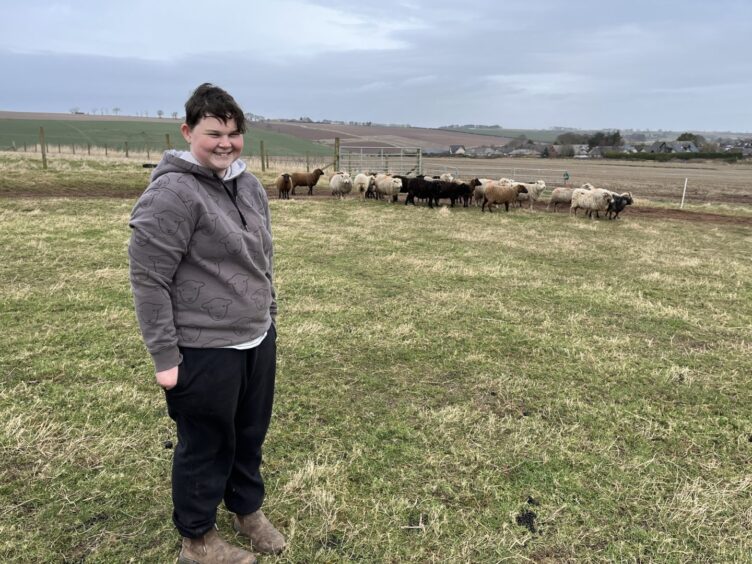
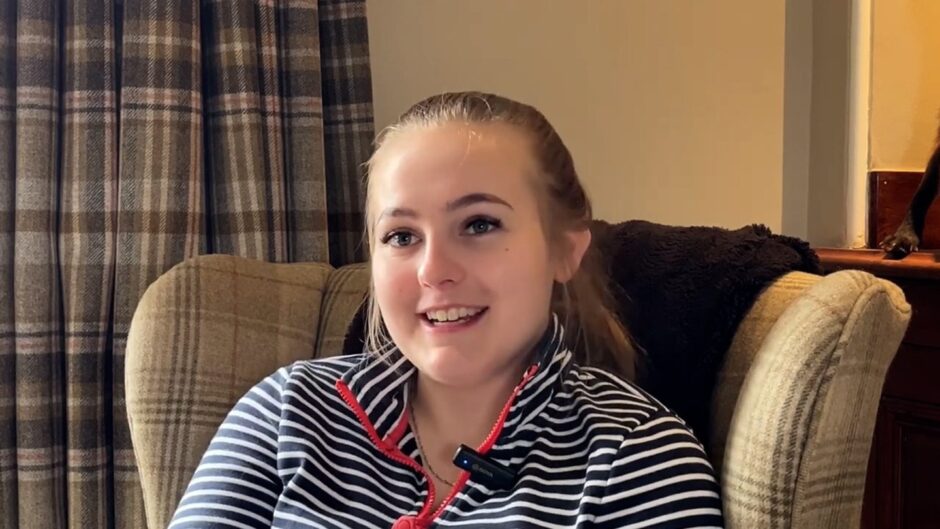
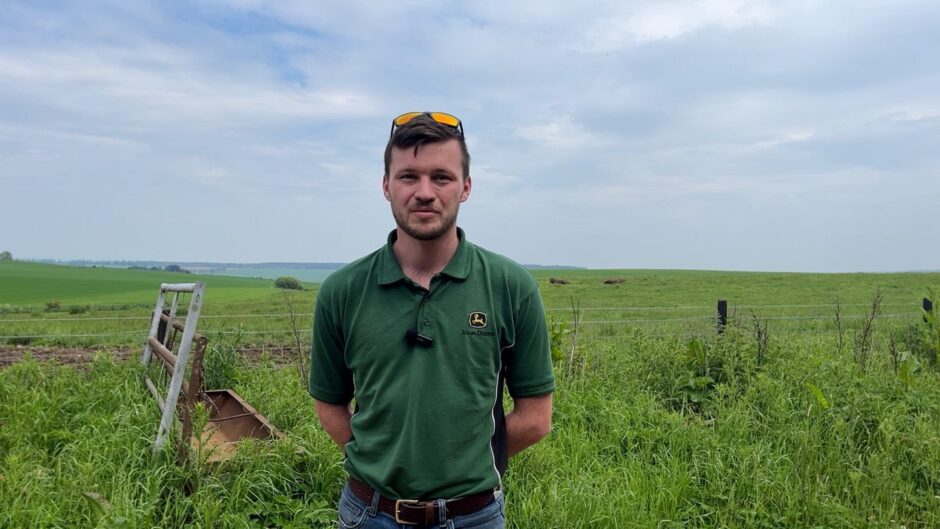
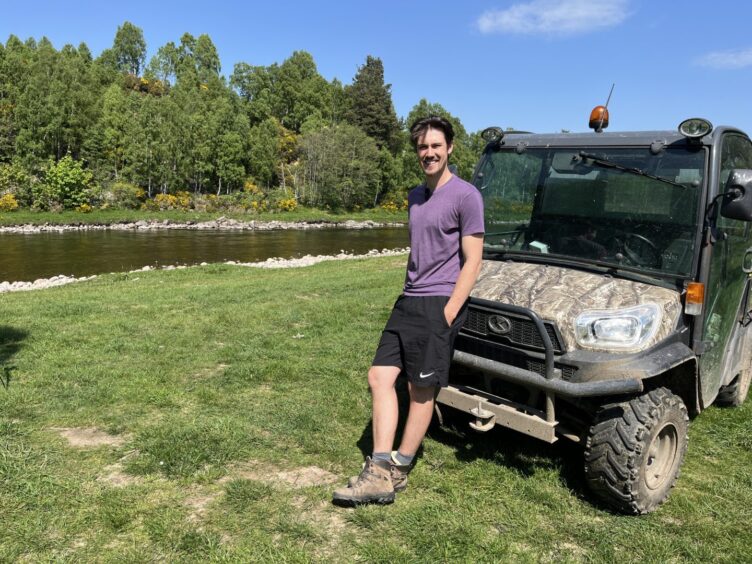
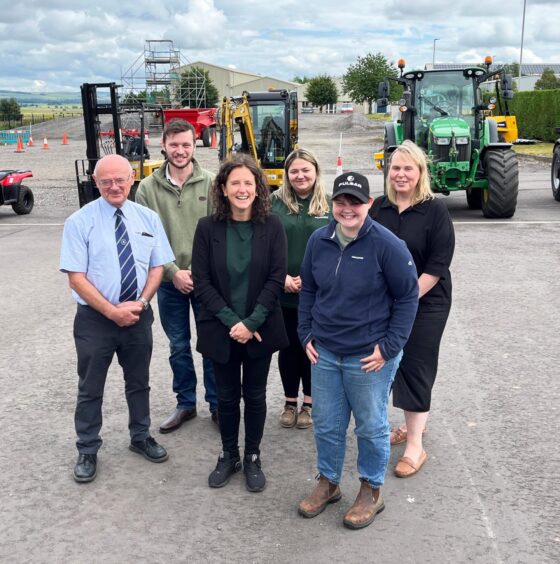
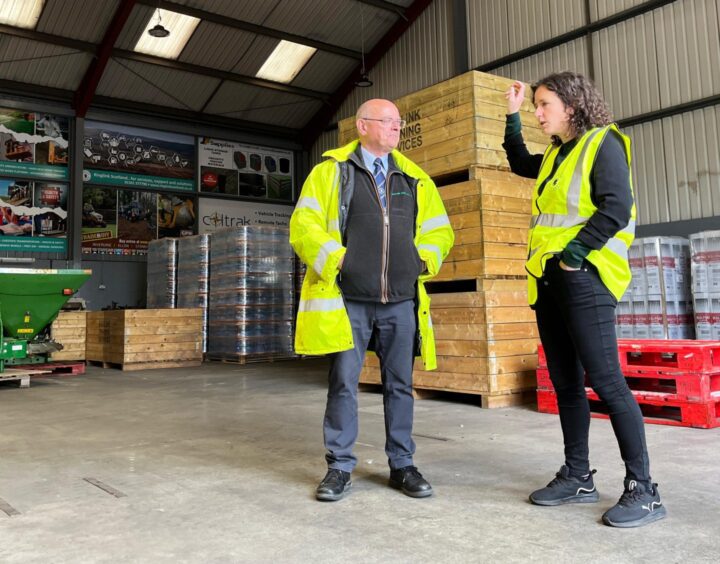
Conversation